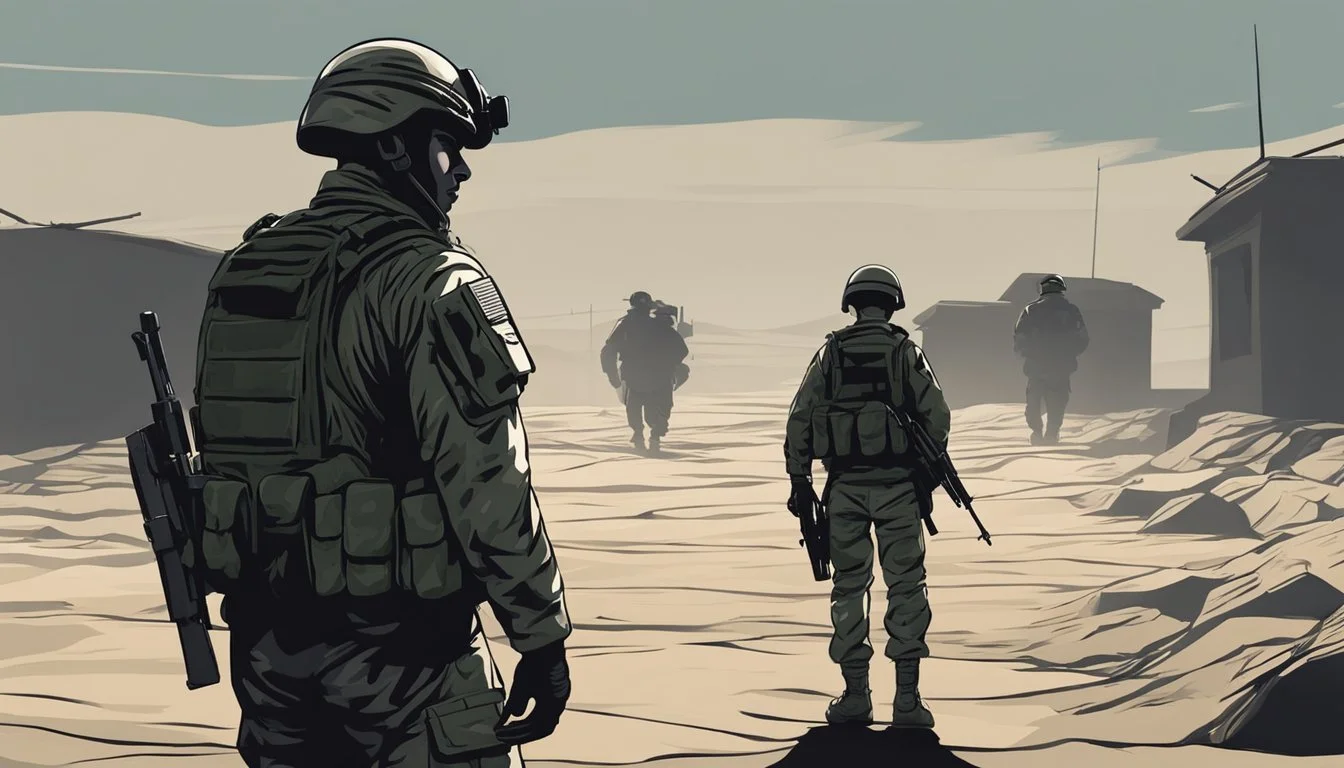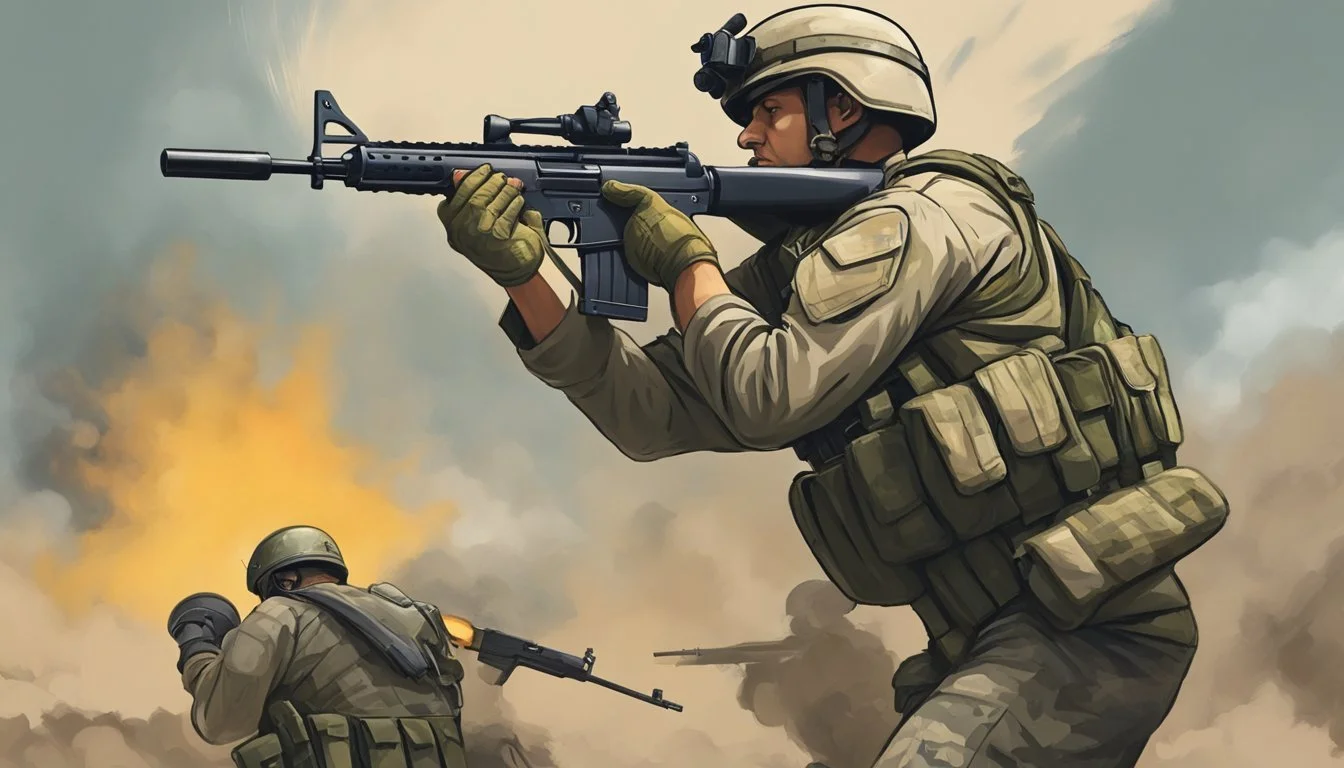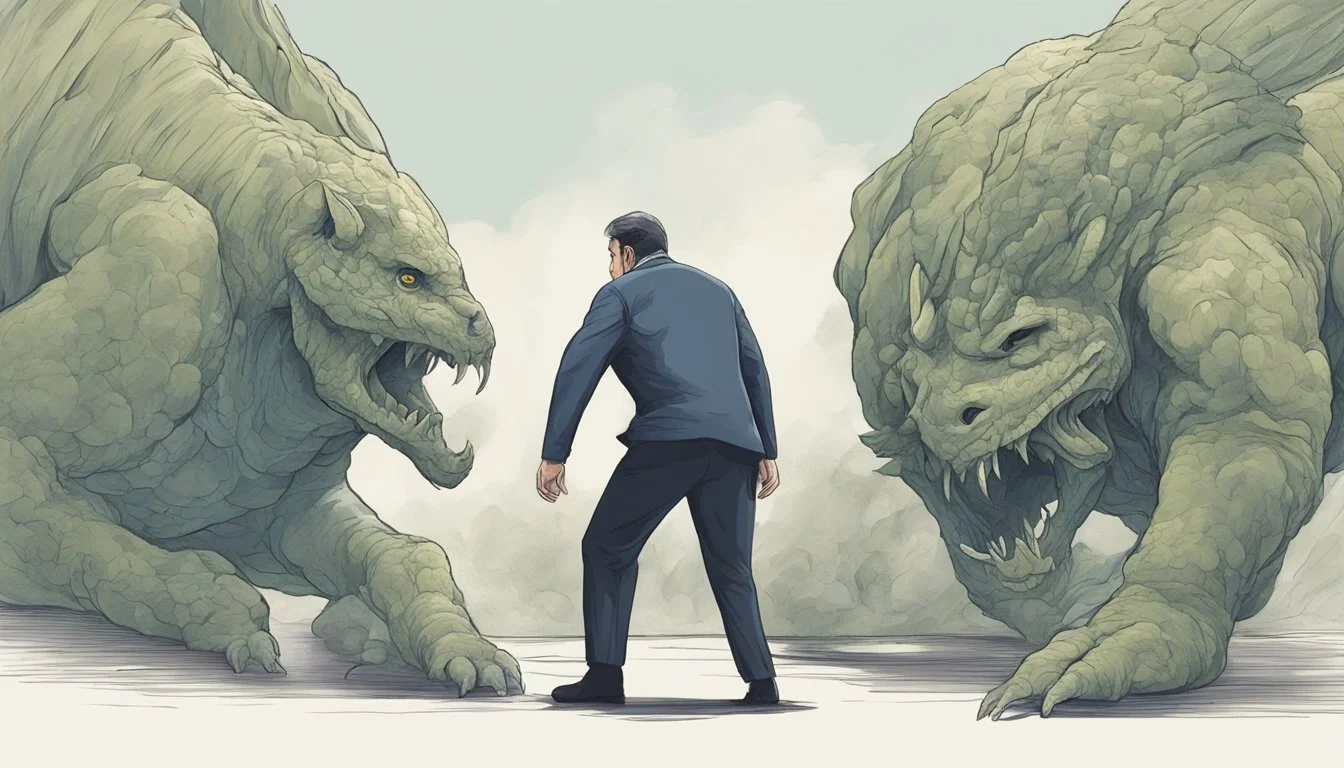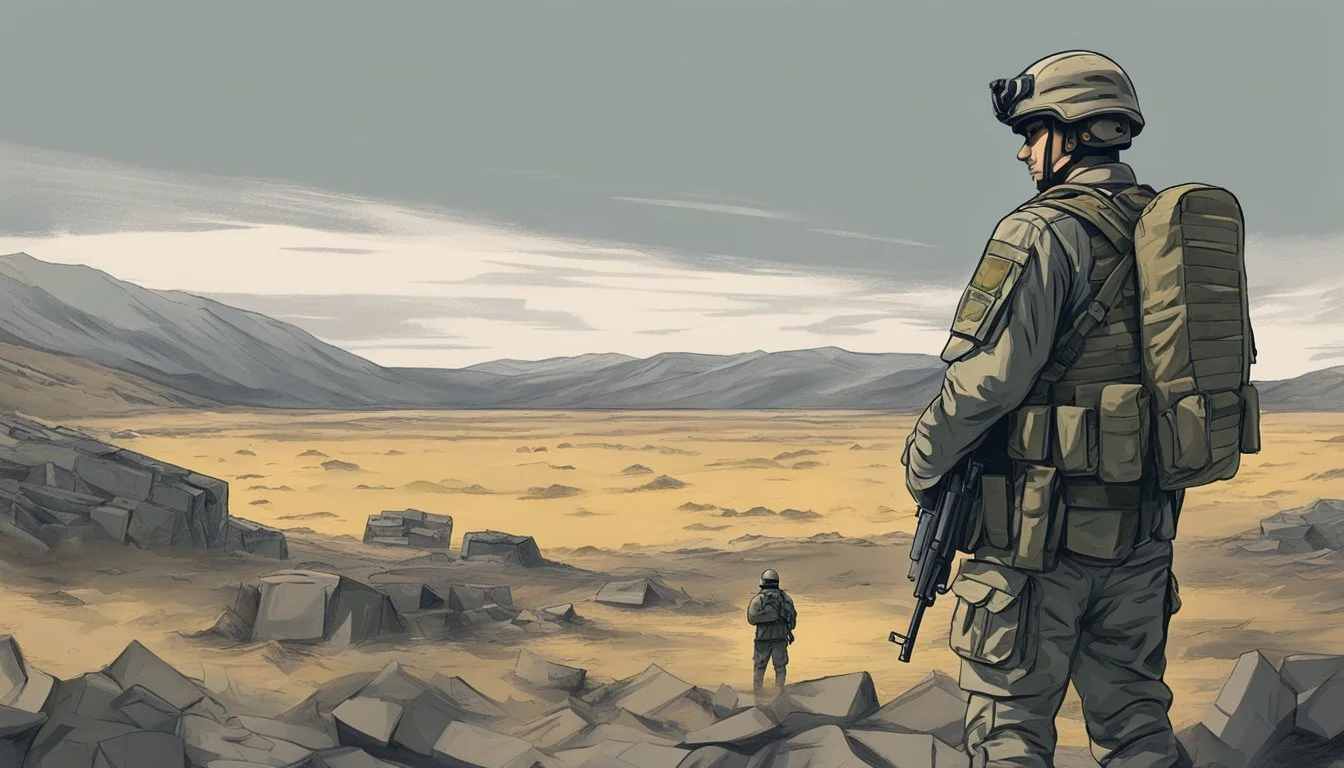6 Types of Trauma That Can Occur in Military Sexual Trauma
Understanding the Impact
Military Sexual Trauma (MST) is a serious issue affecting numerous service members. It encompasses a range of distressing experiences including sexual harassment and assault during military service. Understanding the types of trauma that can arise from MST is essential for recognizing and addressing the mental health impacts on veterans.
Identifying the various forms of trauma related to MST can aid in providing the necessary support and treatment for those affected. This article will explore six types of trauma, emphasizing the importance of awareness and targeted interventions. By shedding light on these different aspects, readers can gain a deeper comprehension of the challenges faced by MST survivors.
1) Sexual Assault
Sexual assault during military service, referred to as Military Sexual Trauma (MST), involves any non-consensual sexual activity. This can include unwanted touching, groping, or penetration.
Perpetrators of sexual assault in the military can be peers, superiors, or even civilians. They can be of any gender, which adds to the complexity and severity of these incidents.
Victims of sexual assault may face severe psychological and emotional impacts. They might struggle with symptoms of PTSD, depression, and anxiety, which can affect daily functioning and quality of life. To learn more about the impacts and assistance available, check the Military Sexual Trauma information.
Sexual assault in the military is addressed under Federal law (Title 38 U.S. Code 1720D). This law ensures that veterans receive the necessary support and resources to cope with the trauma. According to the Veterans Affairs, the VA provides various treatments and support mechanisms for survivors.
Understanding the prevalence and impact of sexual assault in MST is crucial. Providing adequate support and resources is essential for the healing and recovery of affected veterans.
2) Unwanted Sexual Advances
Unwanted sexual advances are a pervasive issue within Military Sexual Trauma (MST). These include any non-consensual attempts to engage in sexual activities. Such advances can range from suggestive comments and inappropriate touching to explicit propositions.
These behaviors are deeply troubling and can occur in various settings, such as on base or during off-duty hours. Perpetrators might be fellow military personnel or civilians, regardless of rank or gender.
Victims of these advances often experience significant emotional and psychological distress. The trauma can lead to anxiety, depression, and even Post-Traumatic Stress Disorder (PTSD). For more insights on these impacts, see effects of MST on mental health.
Addressing unwanted sexual advances requires a comprehensive approach. This includes raising awareness, providing support systems, and implementing stringent reporting mechanisms. The goal is to create a safer environment for all service members.
Confidential help is available for those affected by MST. The National Center for PTSD provides resources to assist in coping and recovery.
3) Sexual Coercion
Sexual coercion within the context of Military Sexual Trauma (MST) involves situations where an individual is pressured or manipulated into engaging in sexual activity against their will. This pressure can come in various forms, such as threats to career, promotion, or safety.
Perpetrators may exploit their power positions, including superior officers or others in authority. This type of coercion is not limited to physical force, but often involves psychological manipulation and intimidation.
Victims of sexual coercion in the military may feel powerless, fearing retaliation or disbelief if they report the incident. This fear can lead to significant emotional and psychological distress long after the coercion has occurred.
Sexual coercion can significantly impact the mental health of survivors, leading to conditions like PTSD, depression, and anxiety. The trauma experienced can have long-lasting effects on their personal and professional lives.
Proper support and resources are essential for those who have experienced sexual coercion. Understanding the dynamics and the impact of this form of trauma can help in providing the necessary care and support for victims. Support from organizations like Veterans Affairs can be crucial in the recovery process.
4) Sexual Harassment
Sexual harassment in the context of Military Sexual Trauma (MST) can take many forms. It includes unwelcome advances, requests for sexual favors, and other verbal or physical conduct of a sexual nature. This behavior creates an intimidating, hostile, or offensive environment.
Individuals who experience sexual harassment may find it challenging to carry out their duties. They may feel unsafe or uncomfortable in their workplace. This can have significant implications for their mental health and overall well-being.
Sexual harassment can occur between peers, superiors, or subordinates. It can happen on or off duty, and on or off military bases. The National Center for PTSD highlights that perpetrators can be of any gender.
Experiencing sexual harassment can lead to lasting trauma. It may result in conditions such as anxiety, depression, and Post-Traumatic Stress Disorder (PTSD). The Veterans Affairs fact sheet outlines how sexual harassment affects individuals during and after their military service.
Professional help is often necessary for those affected by sexual harassment. Counseling and support groups can provide a safe space for survivors to share their experiences.
5) Gender-Based Discrimination
Gender-based discrimination plays a significant role in the occurrence of Military Sexual Trauma (MST). Discrimination often manifests in the form of unequal treatment or biased attitudes towards individuals based on gender. This bias can contribute to an environment where sexual harassment and assault are more likely to occur.
Female service members frequently face gender-based discrimination, leading to increased vulnerability to MST. Stereotypes and biases against women in the military can result in a culture that dismisses or minimizes their experiences of sexual trauma. This dismissive attitude can discourage reporting and seeking help.
Male service members also experience gender-based discrimination, although in different ways. Male victims of MST may encounter disbelief or ridicule, as societal norms often assume men are less likely to be sexually victimized. This can lead to underreporting and inadequate support for affected men.
In both cases, gender-based discrimination exacerbates the impact of MST. Victims may feel isolated and unsupported due to the prejudices present within their units. Addressing these discriminatory attitudes is crucial for creating a safer and more equitable military environment.
Fostering an inclusive culture within the military can help reduce the incidence of MST. Training and education on gender sensitivity and bias can be effective measures to combat discrimination. The effort to eliminate gender-based discrimination must be ongoing and robust.
6) Retaliation for Reporting MST
Retaliation for reporting Military Sexual Trauma (MST) is a significant and troubling issue. When service members report sexual harassment or assault, they may experience various forms of retaliation from peers, superiors, or the institution itself.
This retaliation can take many forms, including social ostracism, punitive work assignments, or negative performance evaluations. In some cases, individuals may face threats or acts of violence.
The fear of retaliation often discourages survivors from coming forward. This can lead to underreporting, leaving many MST incidents unaddressed and unchecked. The issue is complex and multifaceted, requiring systemic change and strong support systems for survivors.
Those who retaliate against MST reporters can be of any rank or position. This makes it challenging to hold perpetrators accountable, especially in hierarchical military structures. Efforts to combat retaliation involve creating safer reporting channels and emphasizing the importance of protecting whistleblowers.
For more information, visit the National Center for PTSD to learn more about Military Sexual Trauma and its implications. Addressing retaliation is essential to ensure a safe and just environment for all service members.
Emotional Trauma
Emotional trauma in military sexual trauma (MST) can manifest in various mental health challenges, affecting Veterans years after their service. Key areas of concern include anxiety, depression, and post-traumatic stress disorder (PTSD).
Anxiety and Depression
Veterans who experience MST often struggle with significant levels of anxiety and depression. These conditions can emerge immediately after the trauma or surface years later.
Anxiety may present as overwhelming fears, panic attacks, or constant worry. Veterans might feel perpetually on edge or overly alert, anticipating danger in their surroundings even when they are safe.
Depression, on the other hand, can lead to persistent feelings of hopelessness and a lack of interest in activities they once enjoyed. It's not uncommon for affected individuals to struggle with sleep disturbances, changes in appetite, and feelings of worthlessness.
Both anxiety and depression significantly impact daily functioning, making it challenging for Veterans to maintain relationships and perform well in professional settings.
Post-Traumatic Stress Disorder (PTSD)
PTSD is a notable consequence of MST and involves reliving the trauma through flashbacks, nightmares, and severe emotional distress when reminded of the event.
Veterans with PTSD may also experience avoidance behaviors. They might steer clear of situations, places, or even thoughts that remind them of the trauma, which can limit their activities and interactions.
Hyperarousal symptoms, such as insomnia, irritability, and difficulties concentrating, are common. These symptoms can lead to difficulties in maintaining steady employment and fostering meaningful relationships.
Unlike some mental health conditions, PTSD often requires professional intervention. Therapy, medication, and support groups are critical components in addressing these symptoms and helping affected Veterans regain a sense of normalcy.
Physical Trauma
Physical trauma related to Military Sexual Trauma (MST) can manifest as chronic pain and sexual dysfunction. These conditions significantly impact daily life and can persist long after the traumatic event.
Chronic Pain
Chronic pain is a common result of physical trauma experienced during MST. This pain can be acute or persistent, affecting various parts of the body such as the back, neck, and joints.
Causes:
Physical injuries during the assault
Psychological stress manifesting as physical symptoms
Impact:
Limits ability to perform daily tasks
Reduces overall quality of life
May lead to dependence on pain medication
Managing chronic pain often requires a combination of physical therapy, medications, and psychological support. It is essential for healthcare providers to recognize the connection between MST and chronic pain to provide appropriate treatment and support.
Sexual Dysfunction
Sexual dysfunction is another significant issue that can arise from MST. It can include a range of problems such as decreased libido, difficulty achieving arousal, or pain during intercourse.
Causes:
Physical trauma to the genital area
Psychological trauma leading to anxiety or depression
Impact:
Strains intimate relationships
Causes significant emotional distress
Can lead to avoidance of sexual activity
Treatment may involve counseling, medical interventions, and support groups. Addressing sexual dysfunction requires a comprehensive approach that considers both the physical and psychological aspects of trauma. Healthcare providers should be sensitive and supportive to effectively treat these conditions.
Cognitive Trauma
Cognitive trauma related to Military Sexual Trauma (MST) can severely affect an individual's memory and concentration. Both of these areas are crucial for daily functioning and career performance.
Memory Issues
Memory issues following MST can range from minor forgetfulness to severe memory impairments. Individuals may struggle to recall specific events or details associated with the trauma. This can lead to problems in personal and professional settings.
Short-term memory can be particularly affected, making it difficult to retain new information. This issue can impact tasks that require learning and retaining new skills or information.
In severe cases, individuals may experience flashbacks, where traumatic memories intrude into the present, further complicating their ability to focus and remember.
Concentration Difficulties
Concentration difficulties are another common cognitive issue stemming from MST. Survivors may find it hard to maintain attention on tasks for extended periods. This can disrupt daily activities and responsibilities.
Hypervigilance, a heightened state of awareness and constant scanning of the environment for threats, can make it challenging to focus. This heightened state can be mentally exhausting, reducing overall cognitive capacity.
Persistent stress and anxiety related to the trauma can also impede concentration. This can make even simple tasks seem overwhelming and may impact academic, professional, and personal commitments significantly.
For more detailed information, you can refer to these Military Sexual Trauma resources.








